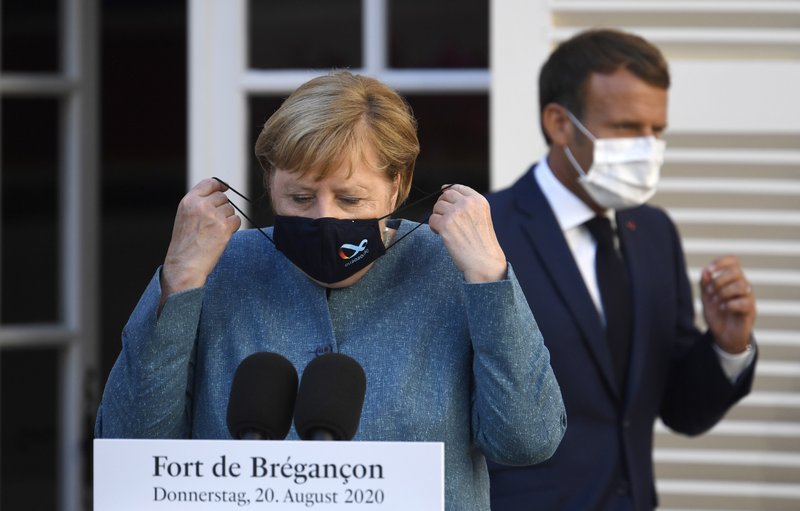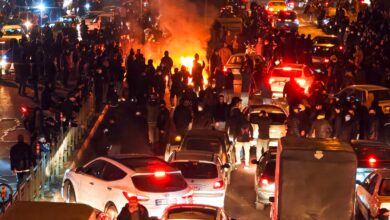
LONDON (AP) — The European economy’s rebound from the coronavirus recession appears to have slowed in August as a resurgence in new confirmed contagions across the region makes businesses, shoppers and travelers more cautious.
An indicator of business activity published Friday by research firm IHS Markit fell back to a level that suggests the economy is barely growing after a relatively strong burst in July, when many countries had phased out the restrictions on public life that were imposed in the spring to contain the pandemic.
Coronavirus contagions are rising rapidly in many European countries, even if deaths remain at a relatively low level. That has made some consumers more cautious. Europe’s busiest airline, Ryanair, said this week it was cutting back further on the number of flights as demand remains low.
That suggests the European economy, which had been expected to bounce back from recession more forcefully than the United States, could take longer to heal.
“The path taken will likely depend in large part on how successfully COVID-19 can be suppressed and whether companies and their customers alike can gain the confidence necessary to support growth,” said Andrew Harker, economics director at IHS Markit.
The so-called purchasing managers’ index, which is based on a survey of 5,000 companies across the 19-country eurozone, dropped to 51.6 points in August from 54.9 in July. The 50-mark separates economic contraction from growth.
The survey found that companies are cutting jobs for a sixth consecutive month, though not by as much as in April, with layoffs biggest in the manufacturing sector.
A significant weakening in European business would be a blow to the global economy as the region had been one of the most successful in getting the pandemic under control. The European economy is forecast to recover more rapidly from recession than the United States, which hasn’t yet managed to significantly reduce its first wave of contagions.
The eurozone economy shrank by a devastating 12.1 percent in the April-June period from the previous quarter but other indicators have pointed to a return to growth — from retail sales to manufacturing. The unemployment rate has held steady thanks to massive aid from governments to keep redundant workers on company payrolls. Some of that aid will phase out or be reduced in coming months, meaning job losses are likely to pile up.
Florian Hense, economist at Berenberg Bank, expects there to not be a repeat of the severe first wave of contagions and restrictions on business. But the uncertainty means the economy will take time to regain strength and won’t get back quickly to where it was before the pandemic.
“Governments should seriously consider to prolong, or at least phase out only slowly, furlough schemes that end this autumn,” Hense said. “Otherwise the hit to employment and income could trigger a double-dip recession.”
Image: German Chancellor Angela Merkel, left, and French President Emmanuel Macron arrives for a press conference at the Fort de Bregancon, southern France, Thursday, Aug. 20, 2020. The leaders of Germany and France are meeting Thursday at a Mediterranean retreat for talks on how to resuscitate Europe’s economy without causing a new virus crisis, and on a growing number of global hot spots. (Christophe Simon/Pool Photo via AP)




